BOONE, N.C. — Team Sunergy, Appalachian State University’s student-run solar vehicle team, cleared significant hurdles this past weekend at the 2021 Formula Sun Grand Prix (FSGP) in Topeka, Kansas, earning its place in the upcoming American Solar Challenge (ASC) — a nearly 1,000-mile road race from Missouri to New Mexico.
From July 27–Aug. 1, with temperatures hovering around 100 degrees Fahrenheit, the team sweated the details — addressing brakes, steering and suspension issues, plus a battery seriously damaged in transit. They worked round-the-clock to pass a series of critical inspections and driving maneuvers — called scrutineering — for the green light to compete on the FSPG 2.5-mile track.
“We are so proud of our team, which has persevered through the pandemic to represent App State at these competitions for the fourth time, inspiring others and testing the limits of what can be accomplished with the power of the sun,” said App State Chancellor Sheri Everts.
Once cleared for racing, Team Sunergy completed the required number of laps over the course of two days, securing second place in FSGP’s multi-occupant vehicle (MOV) category and qualifying for a spot in the ASC road race across four states. ASC began Aug. 3 in Independence, Missouri, and concludes in Las Vegas, New Mexico, on Aug. 7. Track the ASC race.
“This year’s team exhibited heart, determination and a passion of purpose in a trial-by-fire competition,” said App State Chief Sustainability Officer Lee Ball. “These are the leaders who will forge a better tomorrow.”
To qualify for ASC, teams representing 12 universities were required to complete 82 laps on a solar-charged battery in one day or 124 laps over two days. The goal of FSGP is not to finish first or go the fastest, but to run the most laps with as little energy as possible. Teams are scored based on their car’s efficiency and practicality.
App State’s Cruiser Class, two-passenger vehicle — ROSE (Racing on Solar Energy) — completed 129 laps and 322.5 miles and tied FSGP first place winner University of Minnesota with a top lap time of 3:43 (MOV category).
Also competing as MOVs were Iowa State University and North Carolina State University. Of the 12 vehicles that competed, nine qualified to make the Topeka–Las Vegas trek.
This is the fourth year App State has competed in the FSGP, winning podium spots all four years. This year’s ASC competition — underway at publication — is App State’s third; the team took podium spots in the last two.
Team Sunergy began in fall 2013 as a class project to build a solar-powered golf cart and developed into an interdisciplinary team of App State students, faculty and staff working together to research and develop solar-powered race cars. Supported by faculty from its inception, it was institutionalized and funded by Chancellor Everts — recognized as the team’s No. 1 fan.
Designed, built and raced by App State’s solar vehicle team in 2018, ROSE was reengineered this year by a rookie team playing catch-up during a pandemic. The car has a top speed of 60 mph and a maximum range of 300 miles on a single battery charge.
Read details about ROSE’s specifications and its first team.
An App State send-off for Team Sunergy
During a July 23 ceremony at the solar vehicle’s garage, the team unveiled the re-wrapped car, modified for better performance and efficiency, to a crowd of 50 or so invited guests.
Before a dramatic reveal complete with theatrical fog and amped music, Ball highlighted the interdisciplinary nature of the project, with students representing a variety of majors and interests — from business, to communications, to sustainable technology. Team advisers include Ball and both active and retired App State faculty and staff.
Ball also recognized Everts, who has supported the team since its inception and whose last-minute intervention secured necessary funds for the original solar vehicle team’s first ASC race.
In her remarks, App State Provost and Executive Vice Chancellor Heather Hulburt Norris commended Ball and the Office of Sustainability for their leadership, stating Ball “instills in this team his own passion for a sustainable future.”
Jessica Navarro-Luviano, a senior sustainable technology major from Mocksville and co-mechanical director and driver for Team Sunergy, shared the team’s improvements to ROSE, which include modified suspension, battery, brakes and doors — the latter of which are sturdier and include a carbon fiber layer and new latch.
The ceremony was also a send-off for the team, which left the next day for Topeka. The two-day trip for the Team Sunergy caravan was a blur of cornfields, heat and long nights, with both the mechanical and electrical teams working nonstop to have ROSE race ready.
Competitive spirit and camaraderie
On the day before scrutineering began, the team’s high spirits were dashed by news that ROSE’s battery was damaged in transit. The battery is necessary to store power, allowing teams to still drive during overcast or rainy days.
Two mechanical team members stepped up — Navarro-Luviano and Stephany Garcia Henao, a senior in the Honors College, worked nonstop for the rest of the day, spot welding cells onto the battery. By the end of the next day, the battery was ready to install and the team was able to begin scrutineering.
“The camaraderie between the teams at FSGP is incredible,” said Team Sunergy Co-business Director Sean Riordan, a sophomore political science and economics double major from Campobello. “Every time we faced an issue, we had teams offer to help. Everyone is excited to see the other teams compete, so we all work together to get through scrutineering.” One example of many: Team Sunergy offered garage space to its sister institution NC State when the SolarPack was unable to secure its own garage.
“I have never been a part of a team that has meshed this well,” said Jameson Mathews, a senior sustainable technology major from Raleigh and member of the Team Sunergy mechanical team. “Working together to build this car has been one of the greatest experiences of my life. I’ll be telling this story to my grandkids one day.”
Sam Cheatham, a senior marketing and management double major from Mills River who serves as Team Sunergy’s co-business director, agreed with Matthews’ sentiment: “The way that this team has built each other up is incredible. We have overcome impossible obstacles and surpassed our own expectations. We can’t wait to keep competing in the name of sustainability.”
What do you think?
Share your feedback on this story.
An Appalachian team seeks to change the future of transportation with a solar race car
About App State’s Team Sunergy
Appalachian State University’s internationally recognized Team Sunergy is an interdisciplinary, student-led team with a passion for sustainable transportation — and the ingenuity, innovation and drive to create it. The team began in fall 2013, as a class project to build a solar-powered golf cart, and has evolved into an award-winning program that has achieved podium finishes in every year of competition in both the Formula Sun Grand Prix and American Solar Challenge (ASC), including a first-place finish in the 2021 ASC. Both races set the standards for and test the limits of solar vehicle technology. Team Sunergy’s first vehicle, Apperion, was a modified single-occupant race car. In 2018, the team designed and built its current, two-passenger, Cruiser Class car, ROSE (Racing on Solar Energy), from the ground up. Learn more at https://sunergy.appstate.edu.
About Appalachian State University
As a premier public institution, Appalachian State University prepares students to lead purposeful lives. App State is one of 17 campuses in the University of North Carolina System, with a national reputation for innovative teaching and opening access to a high-quality, cost-effective education. The university enrolls more than 21,000 students, has a low student-to-faculty ratio and offers more than 150 undergraduate and 80 graduate majors at its Boone and Hickory campuses and through App State Online. Learn more at https://www.appstate.edu.

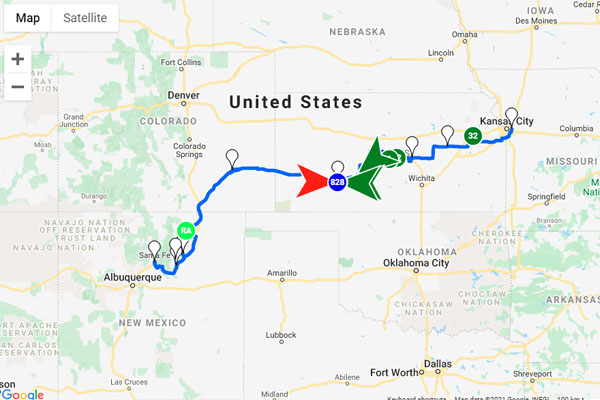
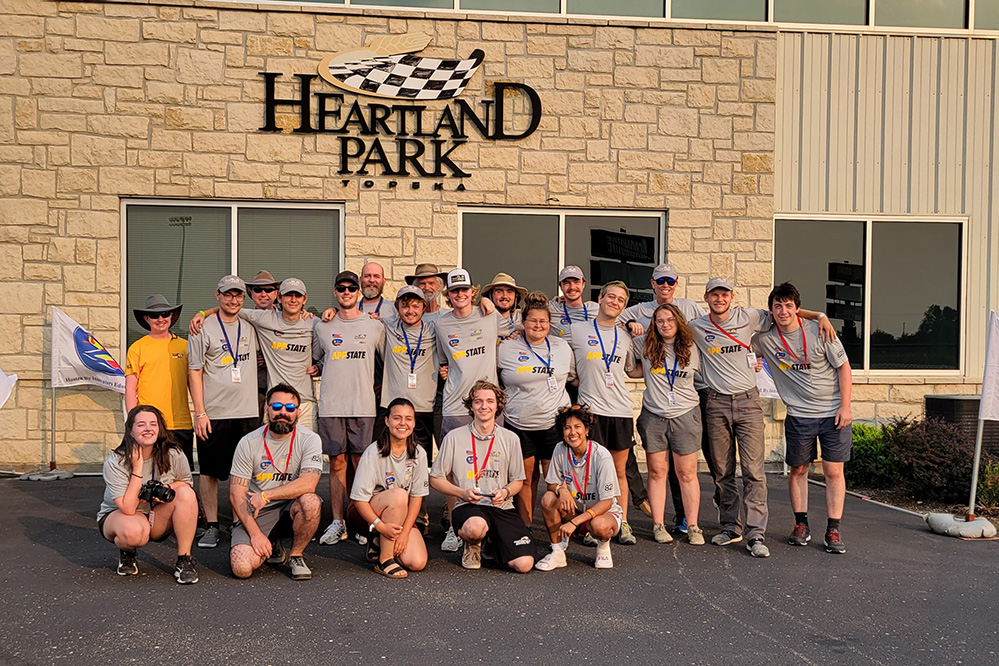
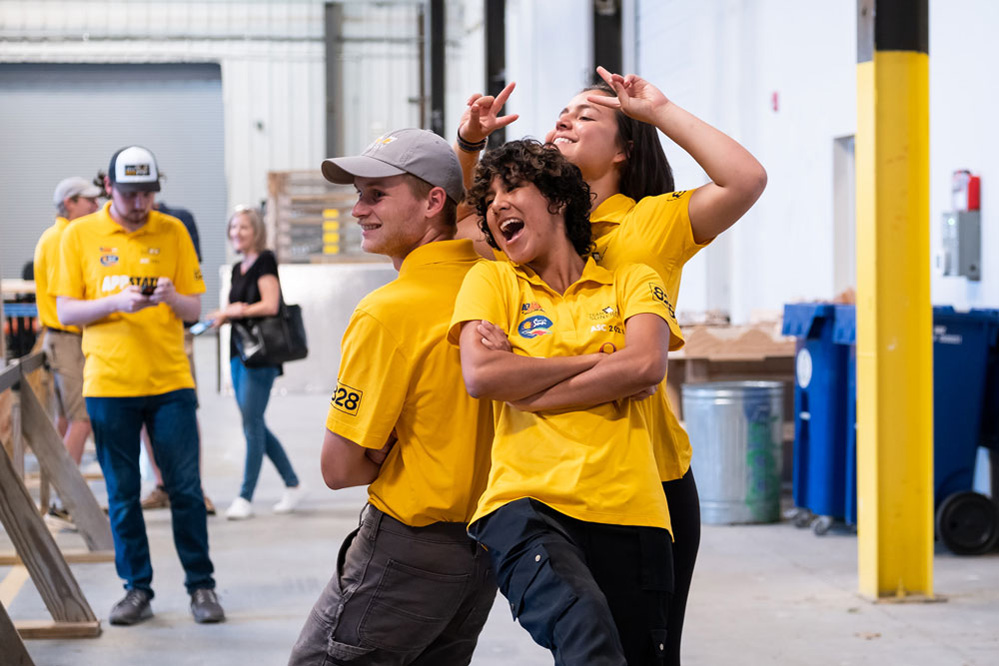
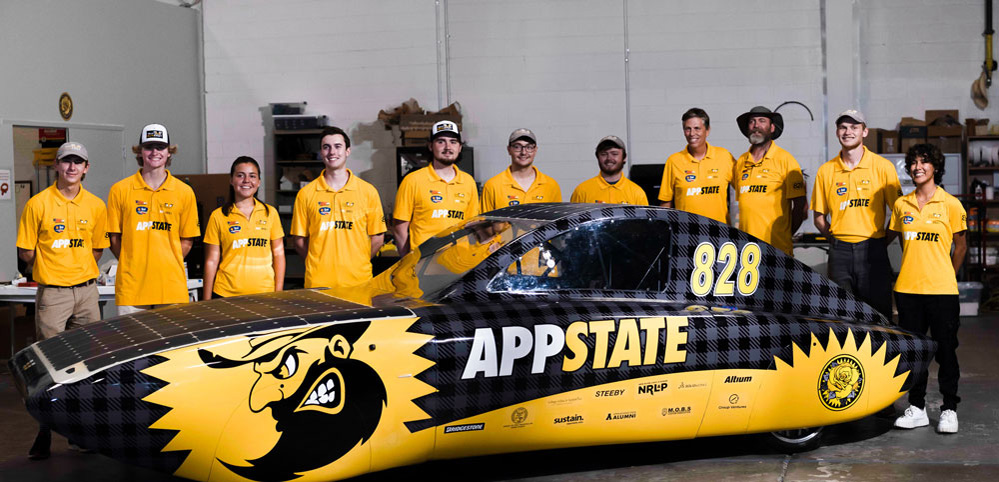
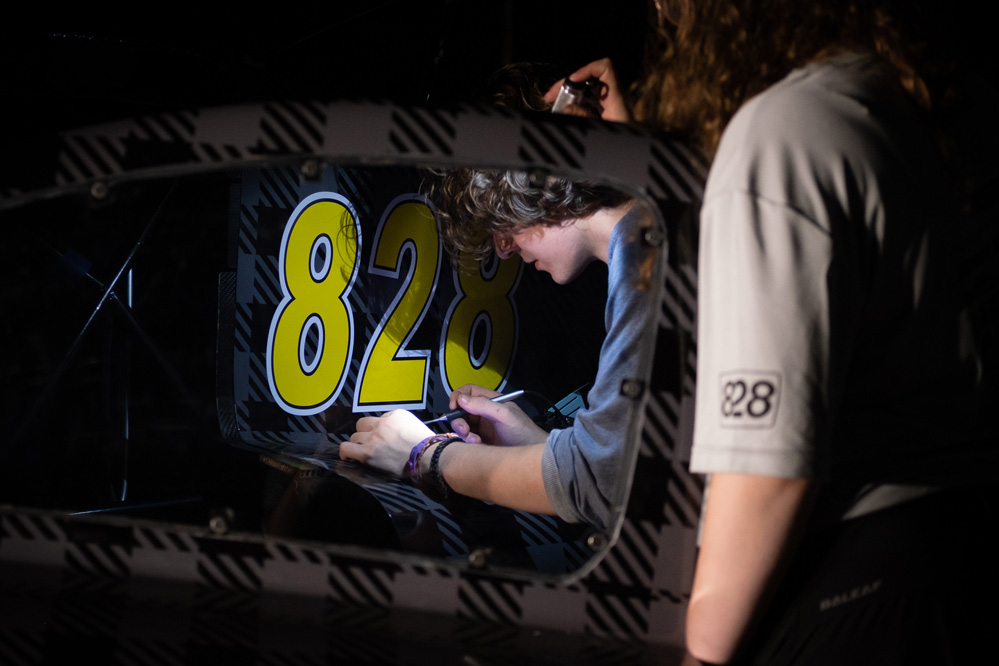
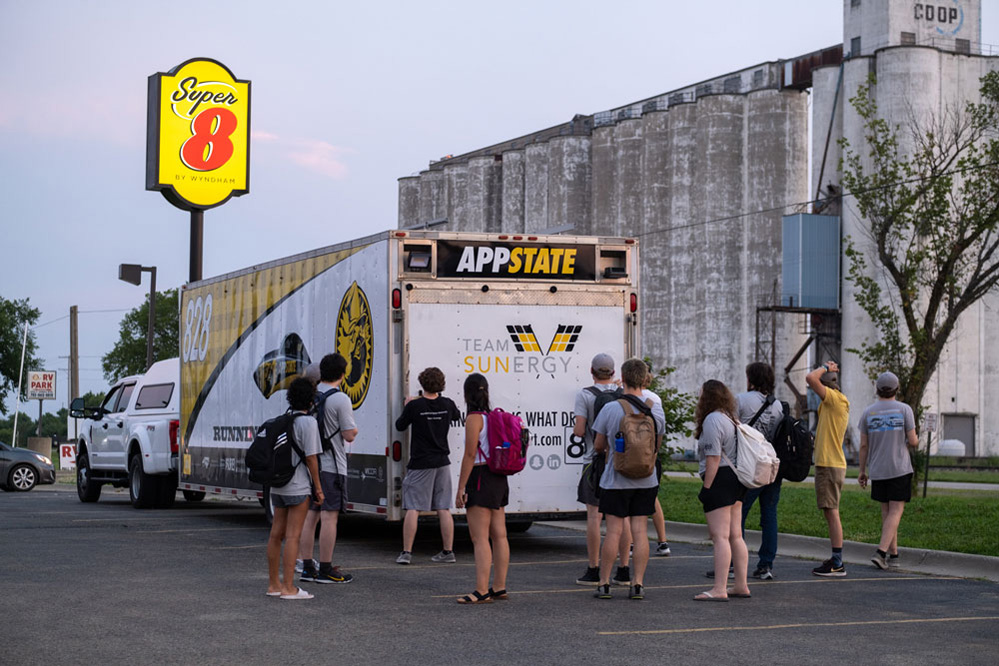
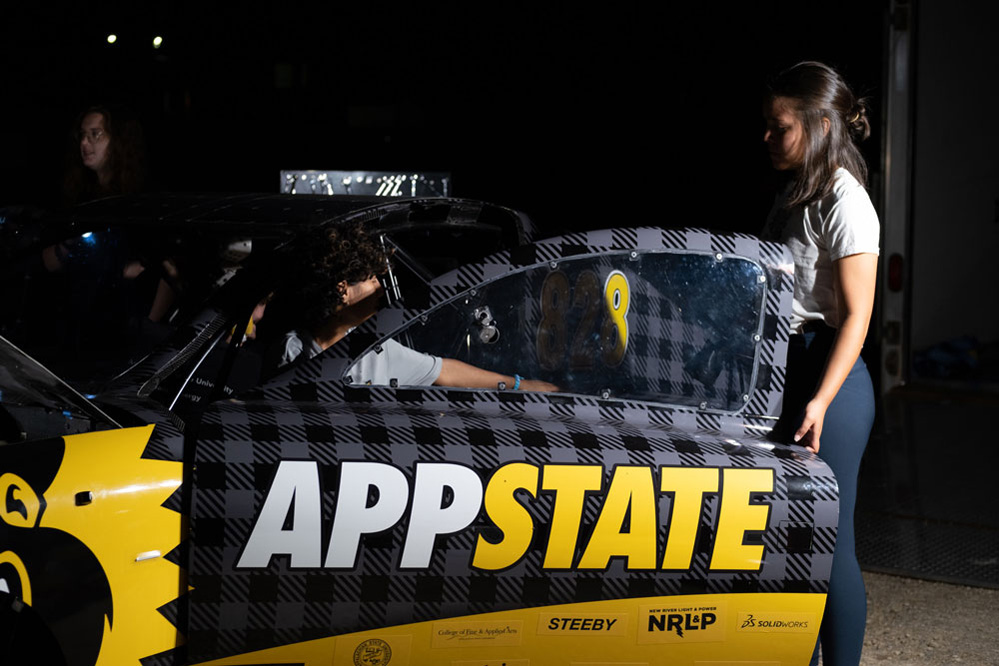
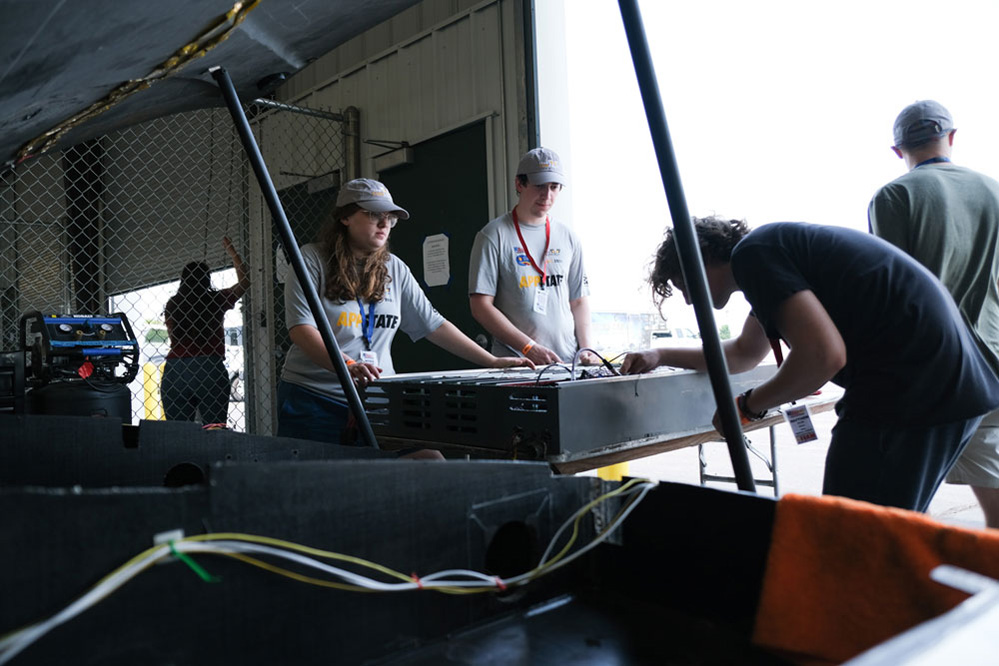
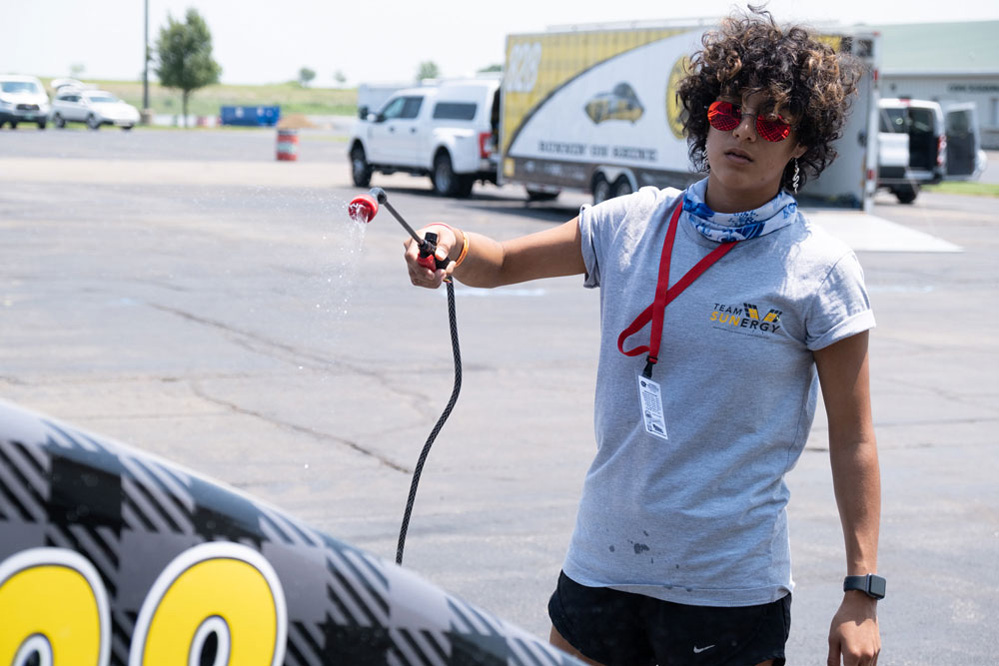
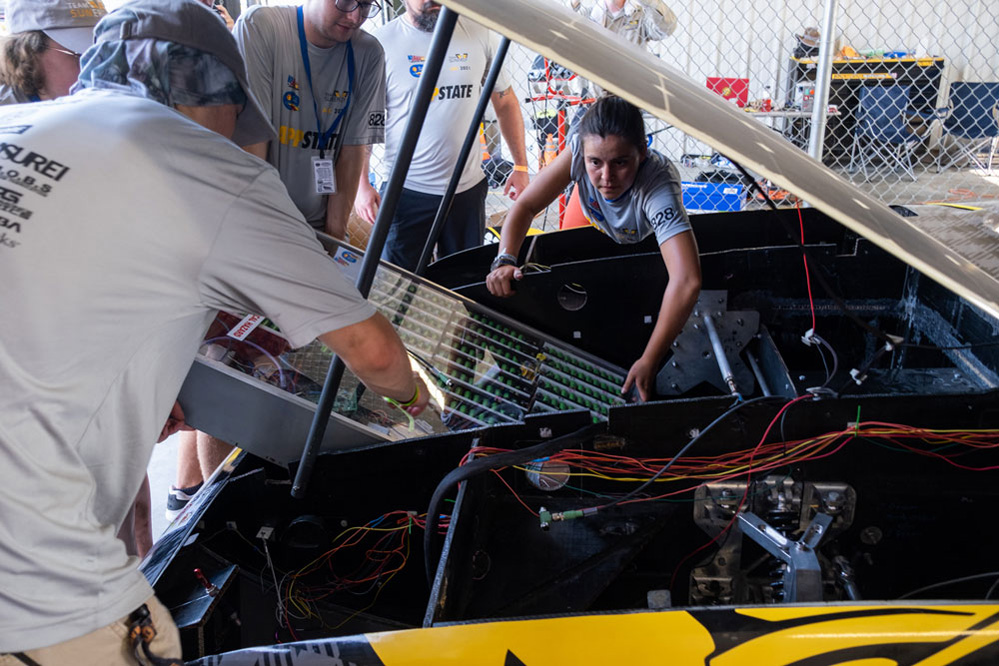
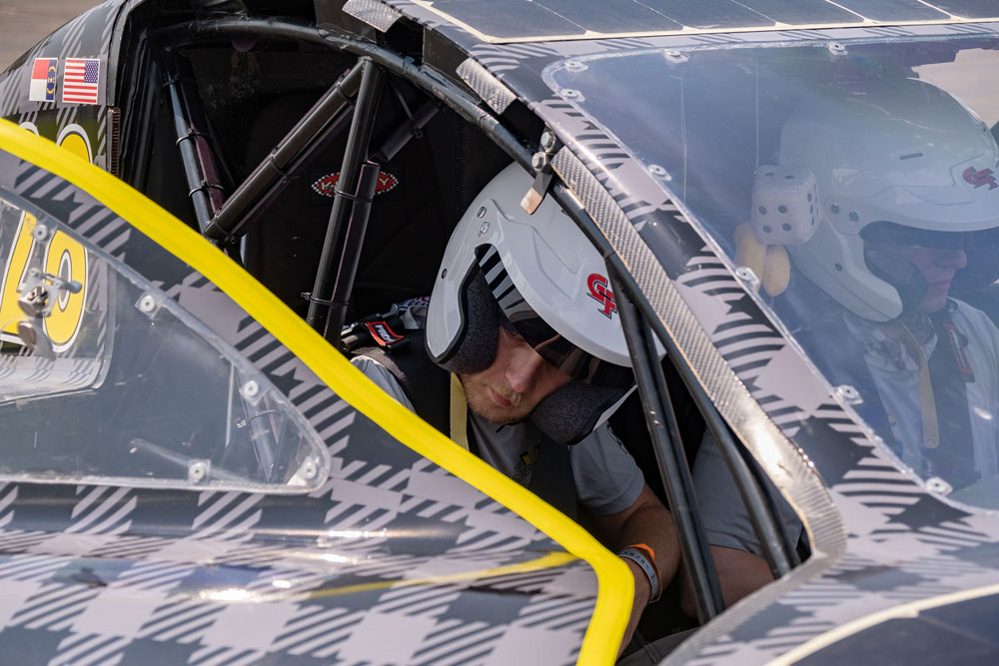
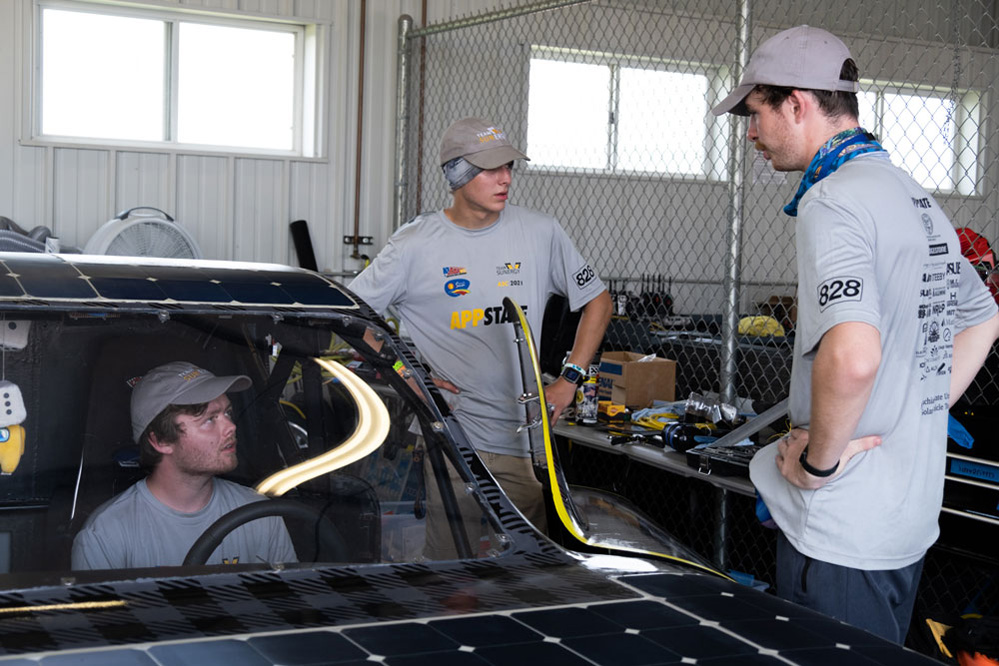
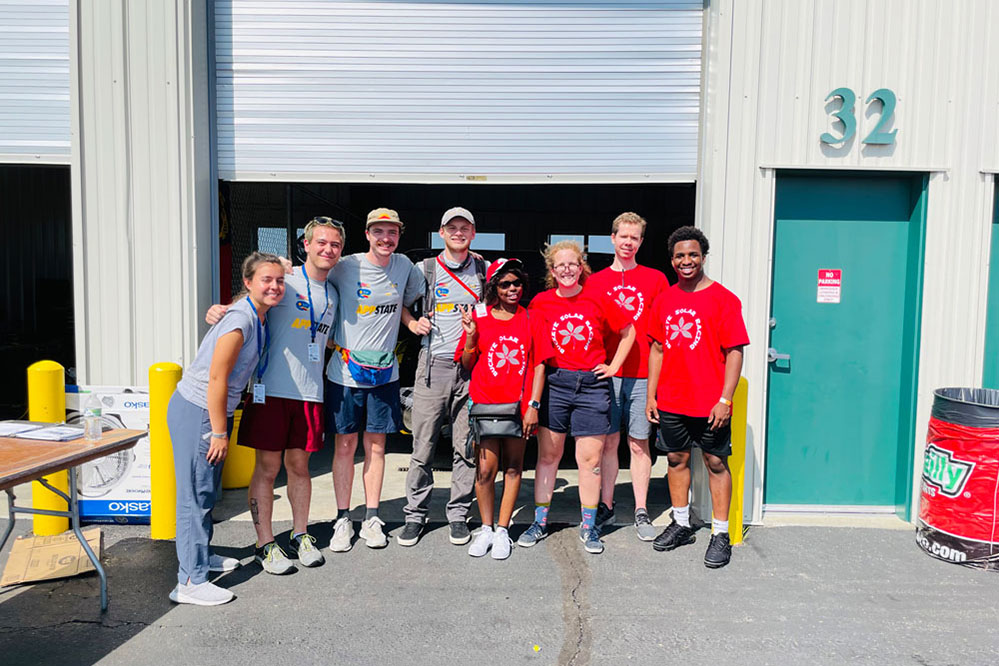
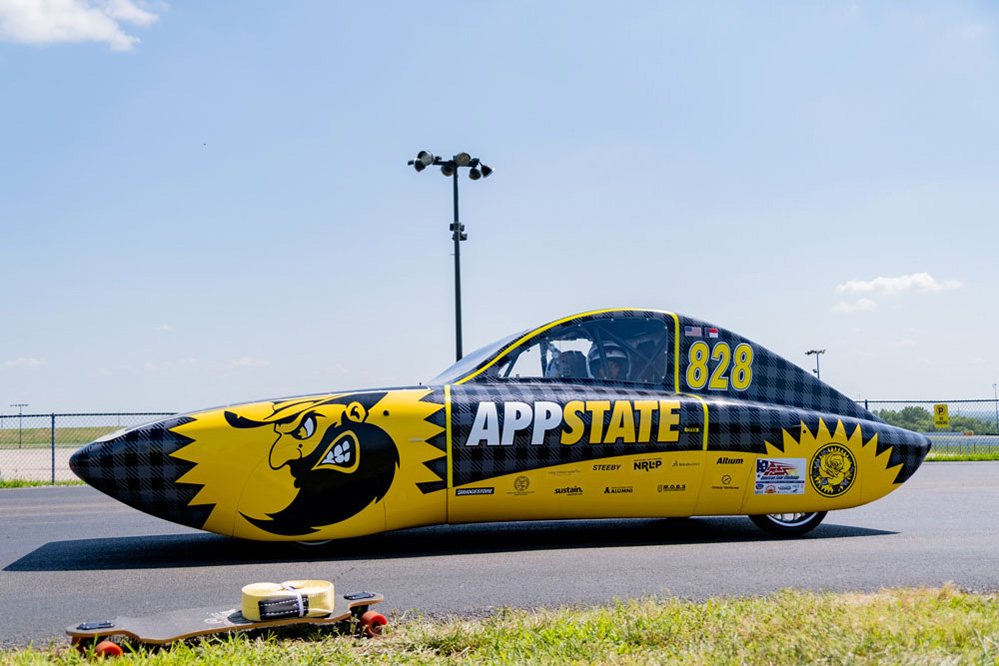
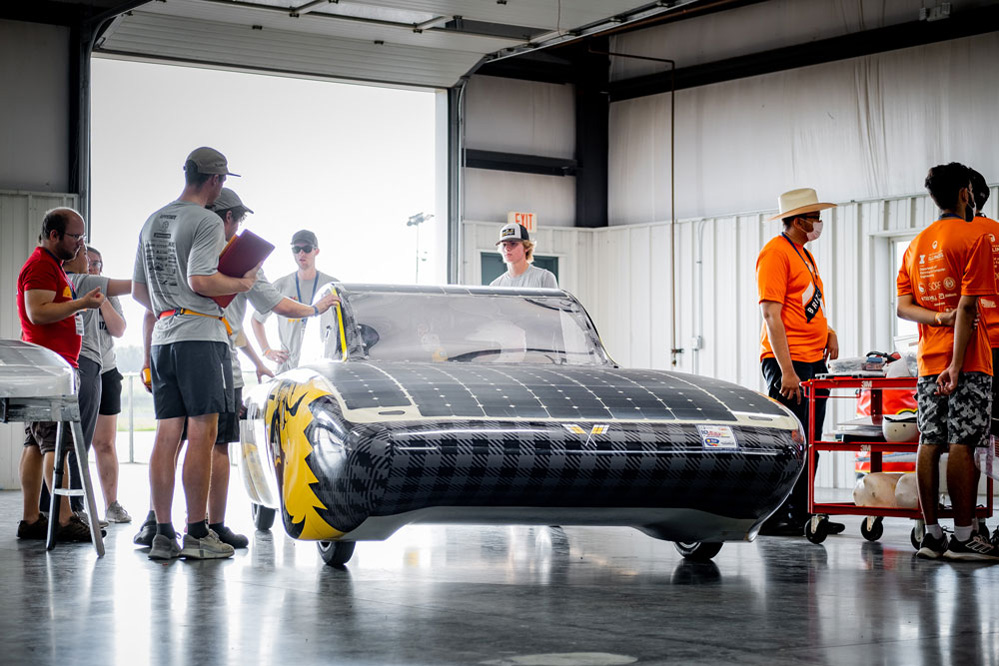
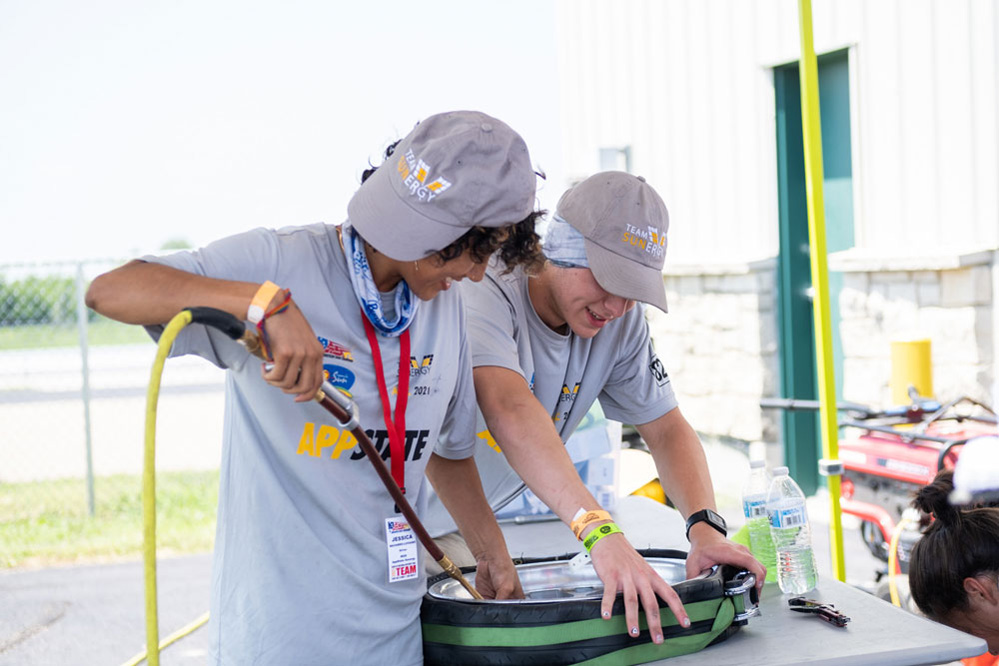
















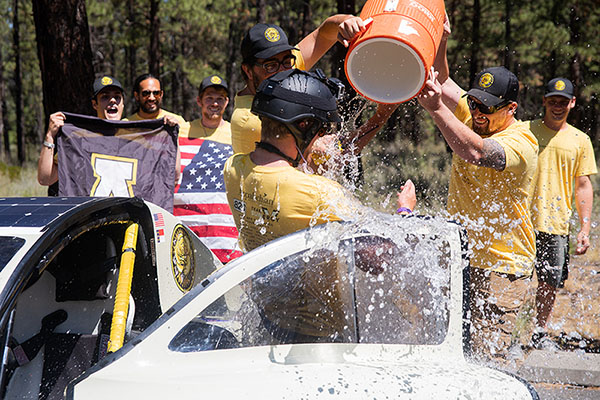
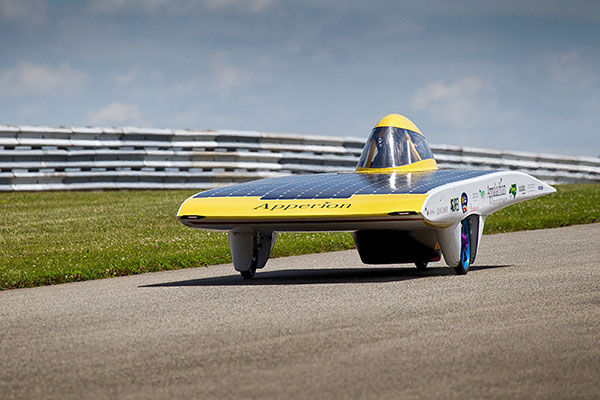


![How NCInnovation Is Rethinking Economic Development in North Carolina [faculty featured]](/_images/_posts/2026/02/rethinking-economic-development-600x400.jpg)








